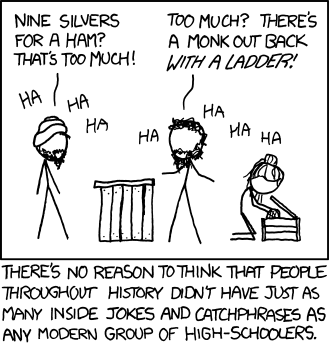Prepare for a rare intra-blog dispute. Joseph found something to like in Megan McArdle's reply to Felix Salmon's post on airports. Here's the relevant section from the Atlantic:
Still, I think there's quite a lot about American airports that is important, and inadequate. Given the ubiquity of electronic devices, and the importance of airports to business travelers, we could probably enhance national productivity quite a bit if so many airports didn't force travelers to spend their wait times fighting each other for the one electrical socket located behind an out-of-order ATM machine. The ridiculous security theater procedures which have queues stretching out towards the long-term parking lot could be streamlined. And whatever engineer designs monstrosities like Heathrow's 40-minute walk-time from security line to gate should be tracked down and . . . um . . . reeducated, or something.
We might also give serious thought to whether something can be done about the incentives system--and local authorities--who fix things so that the only important customers of airports are the airlines. In many places, a combination of zoning, and the local authorities who often run the airports, means that there's no meaningful competition. The result is that they don't have to do anything to please passengers, and boy, they sure don't. If Felix's point is that improving the airports is probably not going to be a matter of huge government expenditures--or that this is not the best use of said expenditures--I'm pretty sure I agree. But we might think about regulatory changes that would give them reasons to improve.
For starters, I can't award any points here for criticizing the TSA. Everybody hates the TSA. Joseph does. I do. Felix Salmon does. Pretty much anybody who's been in an airplane in the past nine years does. You can't give a writer credit for voicing a universal opinion.
What's left?
A couple of complaints about airport amenities and some wonderfully McArdlesque notions about how market forces work.
It's certainly true that airports could provide a more pleasant experience for passengers but, as Felix Salmon points out, "[T]he airlines are the customers, and the passengers are the goods being transported." This isn't a case of misalligned incentives; this is the business model.
As far as I can tell, the Atlantic post doesn't propose an alternate business plan or a slate of restrictive airport regulations (which are far more difficult to justify than additional regulations for flying). Instead you get a classic McArdle action plan:
Step One -- Relax zoning and other restrictions.
Step Two --
Step Three -- Traveler's paradise.
Just how far apart are steps one and three?
Even with the laxest possible restrictions, there are practical limits on where you can put airports. For one thing it's kind of important to space them out. Would a change in zoning rules add enough airports to create meaningful competition? Almost certainly not.
And even if it did, that would do nothing, absolutely nothing, to reform the more absurd TSA policies. An improvement in airports that doesn't address the security procedures is a damned small improvement.
What's worse, there's reason to believe that even those small improvements wouldn't come to pass. Under the current business model, the only leverage passengers have is the option of voting with their feet, avoiding an airport in such large numbers that the airlines pressure that airport to improve.
Unfortunately, this runs into the same ugly business reality that airlines have encountered when trying to attract customers with all-class amenities. When you go online to book a flight you are normally presented with a handful of choices that vary widely in price* and convenience. The variation in these factors tends to swamp everything else. Factors like a more comfortable plane or better customer service only come into play in the case of a very close tie. This is one reason why most airlines moved away from pushing amenities and focused on loyalty rewards programs.**
Airlines are far more competitive than airports will ever be and most people value a comfortable flight much more than a comfortable airport. If market forces haven't made flights pleasant, they aren't going to do any better with the places we wait for them.
* As Dave Barry explains it:
Q. Airline fares are very confusing. How, exactly, does the airline determine the price of my ticket?
A. Many cost factors are involved in flying an airplane from Point A to Point B, including distance, passenger load, whether each pilot will get his own pilot hat or they're going to share, and whether Point B has a runway.
Q. So the airlines use these cost factors to calculate a rational price for my ticket?
A. No. That is determined by Rudy the Fare Chicken, who decides the price of each ticket individually by pecking on a computer keyboard sprinkled with corn. If an airline agent tells you that they're having "computer problems, " this means that Rudy is sick, and technicians are trying to activate the backup system, Conrad the Fare Hamster.
** Because most people tend to go to the closest airport, an airport loyalty program would spend most of its budget on customers it would have gotten anyway. Bad idea.




